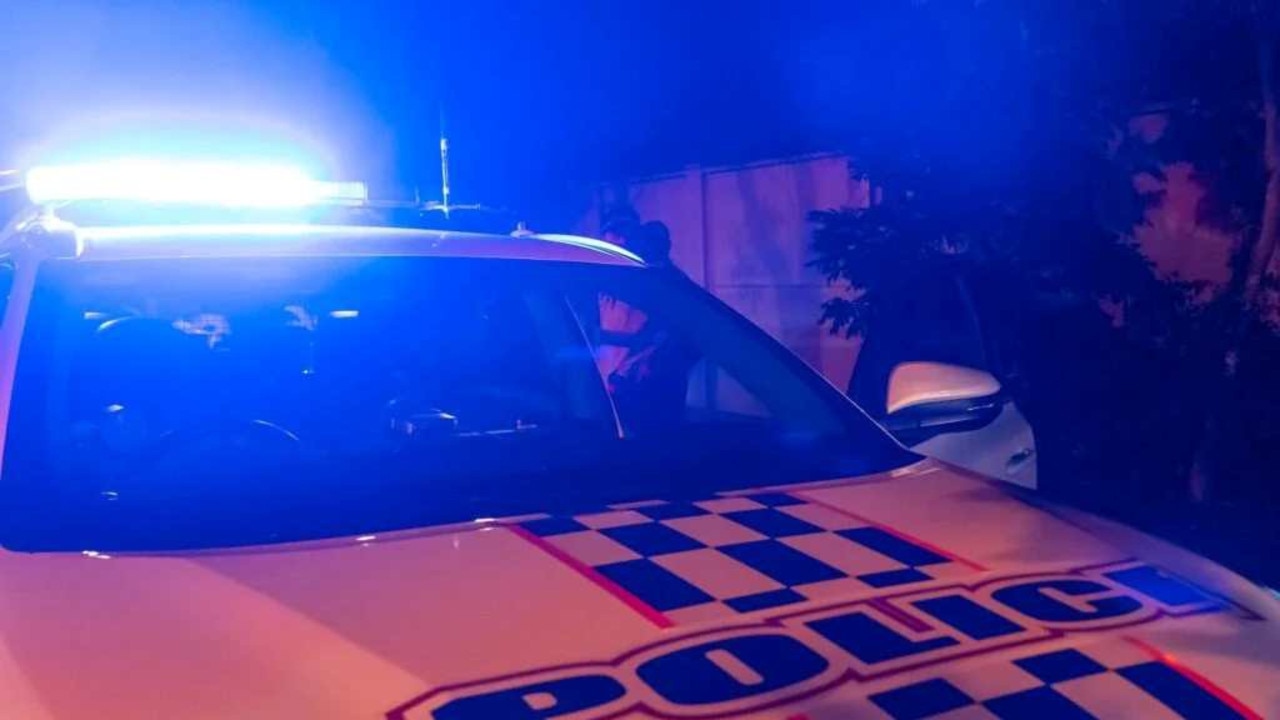Teen deliberately crashed at 120km/h leaving passenger wheelchair-bound
A young man has pleaded guilty to intentionally causing a 120km/h crash that left his passenger, and friend, permanently disabled and learning how to walk again as an incomplete paraplegic.

Police & Courts
Don't miss out on the headlines from Police & Courts. Followed categories will be added to My News.
A young man has pleaded guilty to intentionally causing a 120km/h crash that left his passenger, and friend, permanently disabled.
A court has heard at the man’s part-heard sentence on Monday how his passenger, 18 at the time, was forced to learn how to walk again as an incomplete paraplegic after she suffered a serious spinal injury in the crash.
Fletcher Charles Hosking, 20, pleaded guilty at Brisbane District Court this morning to one charge of dangerous operation of a vehicle causing grievous bodily harm on December 8, 2022.
The court heard Hosking had only just turned 18 when he drove at speeds of 120km/h along Prebble Street, Rochedale, and intentionally crashed into a large tree.
Crown prosecutor Melissa Wilson told the court that Hosking and his passenger had been friends for about four months at the time and had bonded over shared mental health difficulties.
She said Hosking had previously talked to the woman about driving a car into a tree, but his passenger had assumed it was simply “dark humour”.
On the night of the offence, the two had first parked under the tree and chatted for some time with their seatbelts off, but the passenger had “started to get bored and told the defendant at least twice that she wanted to go home,” Ms Wilson said.
“At about 10pm he suddenly said ‘let’s do this’ he grabbed the steering wheel and accelerated at speed down Prebble Street.”

“ … The next thing (the passenger) remembers is not being able to move her legs.”
Ms Wilson said Hosking’s passenger suffered serious injuries to her spine and right foot as a result of the crash.
She said the woman underwent a number of surgeries throughout the three months she spent in hospital afterwards.
The woman was now an incomplete paraplegic and suffered from weakness in her legs, causing her to need a wheelchair for travelling long distances.
Her victim impact statement outlined her struggles learning to walk again and adjusting to life in a way “she never imagined”.
“She described living with a spinal injury as being extremely difficult … She experiences unbearable nerve pain and muscle spasms which keeps her up at night,” Ms Wilson said.
Ms Wilson said the woman couldn’t stand up for more than 20 minutes without pain and suffered from PTSD, panic attacks and nightmares.
“Nothing can undo the damage that has been done,” Ms Wilson said.
“She lives every day with a permanent reminder of what Fletcher’s selfish actions did. She’ll never be able to forget what happened.”
The woman had stated: “I hope by holding Fletcher accountable, the court can prevent this from happening to someone else”.
“I want Fletcher to receive the help he needs so that no one else suffers as my family and I have.”
Ms Wilson noted Hosking was also “quite seriously” injured in the crash, having suffered pulmonary contusions and a number of fractures.
The court heard he still struggled with pain from a pelvis injury which limited his ability to partake in physical activities.
Hosking was originally charged with attempted murder, but the prosecution accepted his guilty plea to dangerous driving causing grievous bodily harm.
“The Crown accepts that at the time of the offending the defendant was suffering with a major depressive disorder,” Ms Wilson said.
“While his judgement was significantly impaired, he drove at speed towards the tree without thinking through the likely consequences to him or his passenger and without meaning any particular harm to (the passenger).”
Defence barrister Angus Edwards said his client’s mental health issues had been exacerbated at the time of the offending by “online attacks” in the form of “sextortion”.
He said Hosking had been under financial pressure at the time by an individual who had attacked his Snapchat account and obtained nude images of Hosking and his partner.
“Your honour will have seen that he was paying sums of money – sometimes in the hundreds, sometimes in the thousands to try and get these people to leave him alone,” Mr Edwards said.
“Even when he was in hospital recovering, they continued trying to extort money from him.”
Mr Edwards said his client would benefit from a wholly suspended sentence or immediate parole, noting the significant extra-curial punishment he had suffered.
He said Hosking had strong family support and had done everything he could in the past two years to rehabilitate himself.
The court heard Hosking had no criminal history at the time of the offence, and had not committed any offences since.
Judge Kent KC adjourned his sentencing to Wednesday, November 13, and enlarged Hoskings bail.
He indicated his sentencing would likely be in line with the submissions of prosecution and defence – who were both in agreement that Hosking would not necessarily require time in actual custody.


